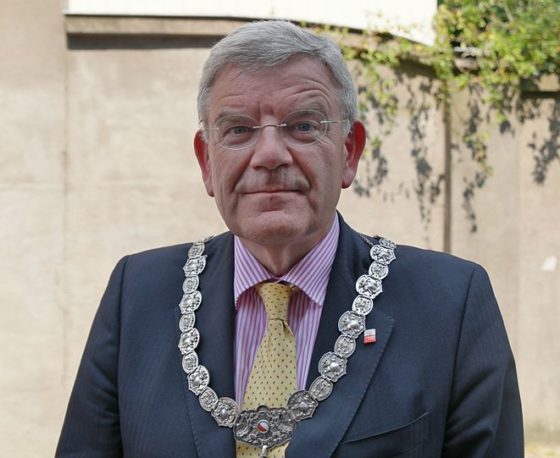Van Zanen apologises for The Hague’s role in slave trade


The mayor of The Hague, Jan van Zanen, has formally apologised for the city’s role in the slave trade and colonial rule.
‘As mayor of The Hague, city of peace and justice, I offer my sincerest apologies on behalf of the executive council for the way in which our predecessors supported and profited from colonialism and slavery,’ Van Zanen said as he presented a study into the city’s colonial past at the Royal Theatre (Koninklijke Schouwburg).
The Hague did not profit directly from the slave trade to the same extent as Amsterdam, as it was not a commercial centre and did not acquire city status until the early 19th century.
But as the seat of government and the royal court, it was the place where the ownership of people and property in the Dutch colonies was codified in law. It was also a major source of capital, with wealthy citizens investing around 200,000 guilders – equivalent to €3.3 million in today’s money – in colonial enterprises.
‘That has led to distress and anger, in part because the system of colonialism and slavery was founded on racism and the idea of white superiority,’ Van Zanen said.
When the Netherlands abolished slavery in 1863 the city was home to 40 Caribbean plantation owners, including aristocrats, military leaders, administrators and politicians.
Colonial heritage
Around 20% of people living in The Hague today are descended from former slaves or people transported from India or Indonesia as ‘contract workers’ to build the colonial infrastructure in Surinam, under oppressive conditions.
Van Zanen said apologising for past injustices was part of the process of tackling the ‘poisonous force’ of racism in society.
‘We can only truly deal with racism today once the memories of the origins of racism and its consequences – colonialism and slavery – become part of our collective memory,’ he said. ‘And at the moment that is not the case.’
Thank you for donating to DutchNews.nl.
We could not provide the Dutch News service, and keep it free of charge, without the generous support of our readers. Your donations allow us to report on issues you tell us matter, and provide you with a summary of the most important Dutch news each day.
Make a donation